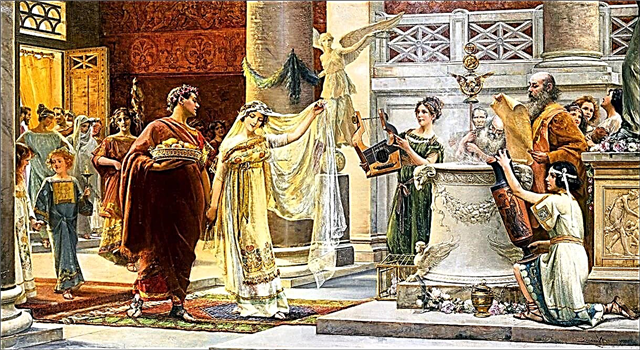
Everyone on earth uses a telephone to communicate, and when answering another call, he often utters the word “Hello” in an interrogative tone. Despite the fact that most people do this, few people wonder where this word came from and why it is used to start a telephone conversation.
The invention of the telephone
Since ancient times, people have tried to find a way to transmit sounds from a distance in order to quickly communicate information. However, due to limited technology, primitive methods had to be used. For example, in the Middle Ages, towers with bells were built around the city. As soon as the caretaker on one of them noticed the incident, he began to ring. The noise of the bell rang in space and reached the neighboring towers, where people also began to ring. As a result, in just a few minutes, the ringing of bells swept the whole city, informing residents about the danger.
Only in the 1860th year, the Italian inventor Antonio Meucci found a way to transmit sounds using electric wires. His invention was called Teletrofono, but Meucci could not patent it due to lack of money.

A year later, Johann Philippe Reis, regardless of Meucci, showed the world an invention called “Phone”. The device had a primitive design, contained a bare speaker and microphone. However, Reis also did not patent the invention.

It was only in 1876 that Alexander Bell filed a patent for his own invention - “Bell Tube”.The phone transmitted sounds at a distance of half a kilometer through the wires. The device worked unilaterally: the subscriber could not listen and speak at the same time.
An interesting fact: in 2002, Meucci was recognized as the first inventor of the phone instead of Bell, despite the lack of that patent.
The invention of the phone has received increased attention from humanity, since everyone understood its practicality and benefits. A few months after Bell's patenting of his invention, telegraph companies began to open around the world. They were engaged in conducting telephone communications in homes and organizations. Active production of Bell Tubes began, though not everyone could afford them at the end of the 19th century.
The appearance of the word “Hello”
To alert the call, the first phones had an automatic whistle, which was soon modified to a full-fledged call, triggered by incoming electricity. Realizing that such images can make the use of phones more convenient, telegraph companies began to develop a set of rules governing the design of the device, as well as methods for its use.
Very quickly there was a need to introduce a special word with which to start a telephone conversation. At that time, people were just learning how to use the device, so they experienced some embarrassment while picking up the phone, as a result of which they could not always clearly start a dialogue. Because of this, it was decided to introduce a special word, it also had to signal to the person on the other end of the wire that the interlocutor was ready to talk.
Inventor Thomas Edison sent an official letter to the Pittsburgh Telegraph Company proposing to use “hullo” as such a word. The word was a modified hello. This initiative was fully supported and on August 15, 1877, “hullo” was approved as a word to start a telephone conversation.
Interesting fact: Bell suggested saying “ahoy” at the beginning of the conversation, but the telegraph company liked Edison's option better.
Since then, with the word “hullo,” most people start a telephone conversation. In Russia and the CIS countries, because of the dialect, it has turned into “hello."
What do they say instead of “hello” in other countries of the world?
While English-speaking countries in the late 1870s used Edison’s proposed “hullo,” other countries redid the word to reflect their own dialect. And some even came up with their own word with which to start a telephone conversation.
The Japanese “mosi-mosi”, which is an abbreviation of mosimasu-mosimasu, can be considered the most distinct from the traditional greeting. Literally, the expression translates as “I say, I say.” Answering phone calls in this way was customary in the 1960s, when an official collection of rules and recommendations was published in Japan that described how to conduct a conversation by picking up the phone.
The French did not distort the English version too much. They only changed “hullo” in their own way, which is why they eventually began to say “allo” at the beginning of the telephone conversation.
Interesting fact: It was from France to Russia that the word “hello” came, in about the 1910s. Since then, Russian people begin a telephone conversation with a common word.
Italians interestingly greet each other by telephone. When a resident of this country answers the call, he says “pronto”. In exact translation into Russian, this means "ready." So the subscriber announces readiness to enter into a dialogue.
Things are quite difficult with a telephone greeting from Azerbaijanis. The people of Azerbaijan use eight different words when picking up the phone, depending on who is calling them. They have a greeting on the phone, which is used if a respected person calls, there is a separate word for a friend, there is simply a careless greeting if the subscriber is not configured to talk now. This helps to understand the attitude and attitude of the person who receives the call.
In Portugal, greeting is a lot easier. In the event of a call, the person picks up the phone and says “estou”, which means “I”.
At the beginning of a telephone conversation, it is customary to say “hello,” because in 1877, Thomas Edison proposed it as a way to answer calls.












